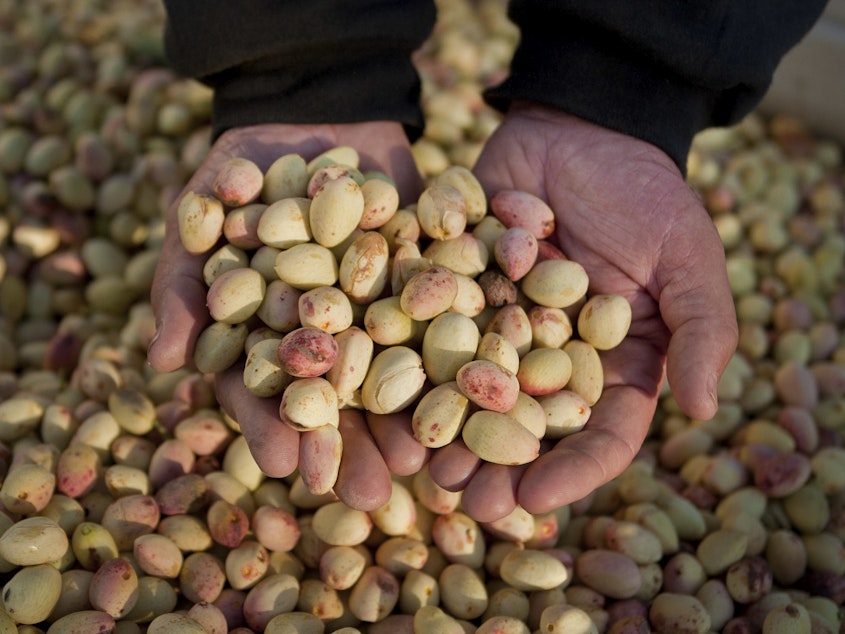Nut Thefts Are A Problem: They're Tough Cases To Crack

Drugs, artwork, luxury watches. If there's a high value good, there's a black market for it.
But nuts?
Organized agricultural crime rings have long targeted California's pistachio and almond growers, and theft is becoming more of a serious concern as production has increased in recent years.
Just a few weeks into the early summer growing season, California's Tulare County reported its first tree nut crime of the year. A truck driver was charged with stealing 42,000 pounds of pistachios with the intent to resell them in smaller bags. The nuts didn't travel far — investigators said they discovered his tractor trailer filled with over $170,000 worth of cargo in a nearby lot.
A theft involving thousands of dollars' worth of pistachios may seem outlandish. And indeed the California's man's arrest went viral. But it wasn't a standalone caper.
Sponsored
Nut Thieves Are Increasingly Sophisticated
Nuts are a big deal in California. Growing conditions — dry, rain free summers — are ideal. The state is the top nut grower in the U.S. leading the way in almonds, pistachios and walnuts.
Almonds alone brought in $6 billion in 2019. They are the state's second-most valuable farm commodity, trailing only dairy products. The United States Department of Agriculture estimates the 2021 almond crop will become the largest on record.
"When there's value and increased value, there's going to be some illicit activities around or people trying to make a quicker, easier dollar," says Joseph England, a sergeant with the Tulare County Sheriff's Office.
Nuts are remarkably suitable for the black market trade. Of course, they don't have serial numbers or QR codes. They're less perishable than other crops. So thieves can store them for lengthy periods of time. And pricy pistachios are a tempting target, more valuable per pound than other crops, according to Richard Matoian, president of the American Pistachio Growers.
Sponsored
Losses From Nut Thefts Are Crushing For Growers
Stealing nuts is not an easy business, and thieves have become more sophisticated over time, says England.
For a nut to go from tree to table, there's a lot of moving logistics involved. After coming off the tree, nuts must be cleaned, pasteurized, roasted or seasoned. Each step is normally completed at a different facility, which makes nut cargo more vulnerable to theft.
To prevent heists facilities have installed surveillance cameras and specialized tags on trucks. But thieves can still outwit growers: it's not uncommon for thieves to hack into trucking companies' computer systems, generate fake load orders and leave with thousands of dollars' worth of cargo, England says.
Losses from large-scale nut thefts are crushing to farmers, says Don Stuhmer, the president of the California Rural Crime Prevention Task Force and a deputy with the San Joaquin County Sheriff's Office.
Sponsored
"Every load of nuts for these farmers is very important. They're chasing that bottom line, and that bottom line is getting thinner and thinner," Stuhmer says.
Savannah Sicurella is an intern on NPR's business desk. [Copyright 2021 NPR]



